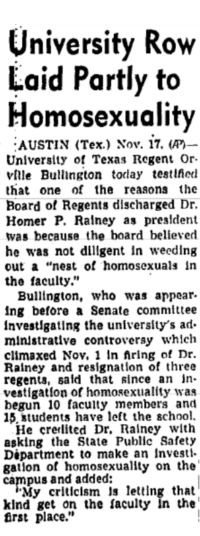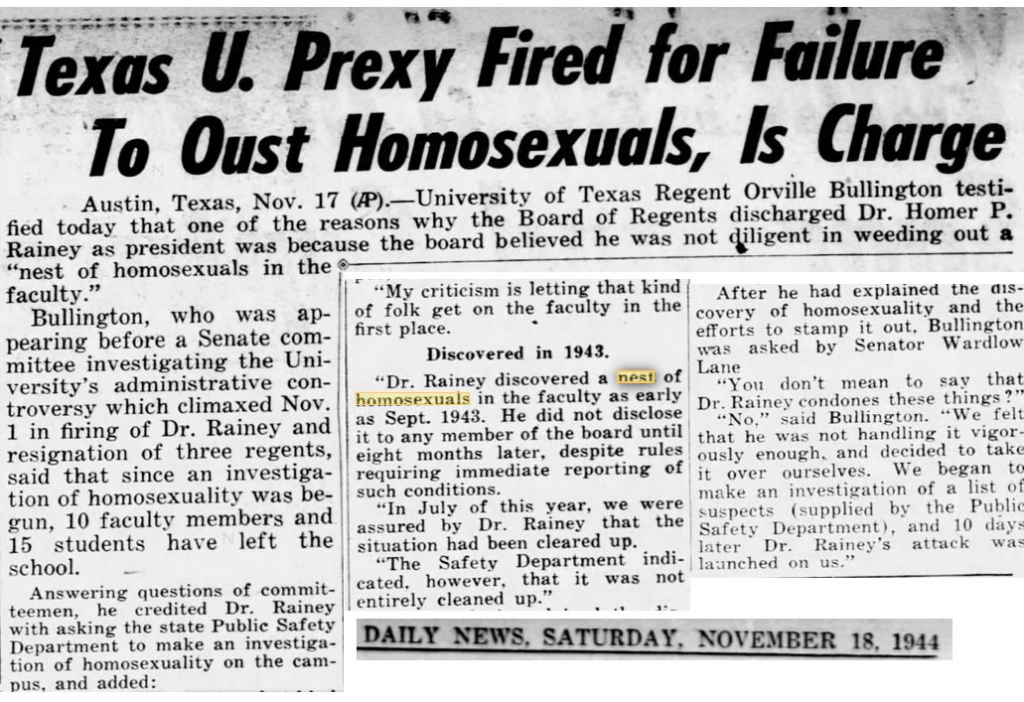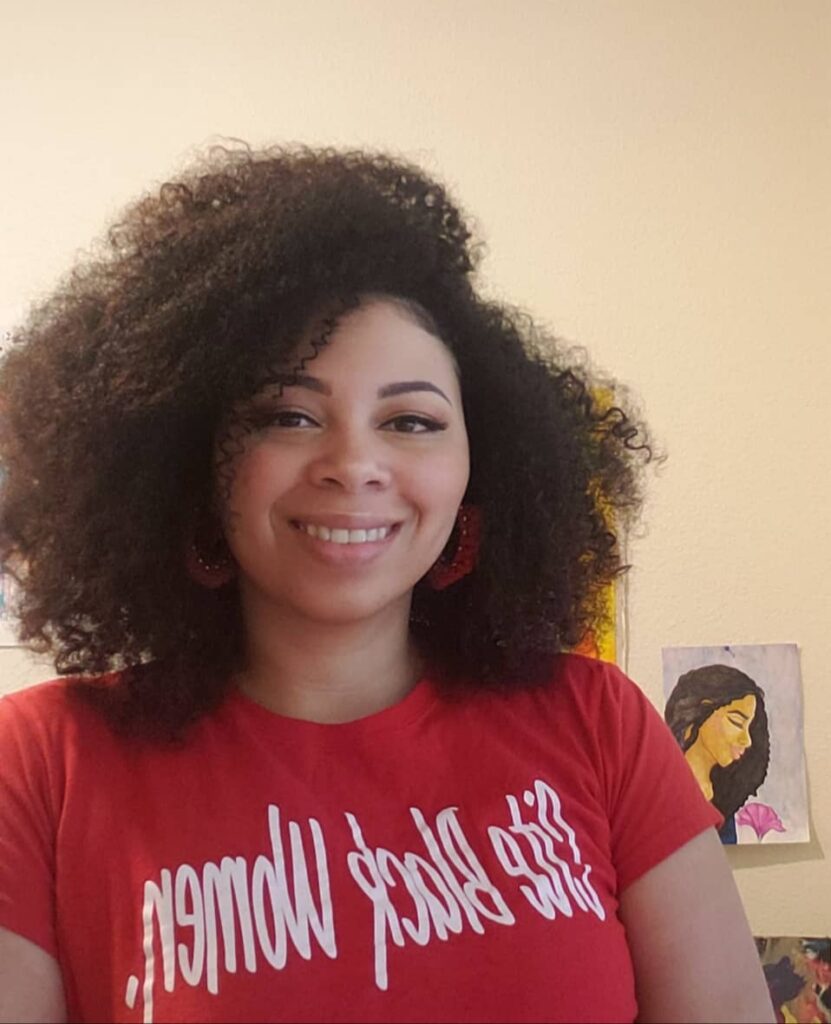by Michaela Machicote
“My criticism is letting that kind get on the faculty in the first place.”
–Orville Bullington, 1944

These words were spoken by Orville Bullington, a University of Texas Regent in 1944 during the nationwide targeting of queer faculty and students that came to be known as the “Gay Purges.” This dehumanizing rhetoric is all-too-familiar to those of us that stand at the fringes of society, excluded from public life, except in the form stereotypes and tropes that revolve around fear-mongering, the decadence of “values and morals,” and often criminality. Accusations that a “homosexual nest” was allowed to proliferate amongst University of Texas-Austin faculty in 1943 led to an ousting (and outing) of faculty, students, and administrators that culminated the following year when the Board of Regents fired UT Austin president Homer Price Rainey. National headlines announced “Rainey is Blamed For Homosexuals” and UT Austin became one of three noted universities to participate in these purges, setting the tone for later persecution in Washington D.C. associated with the rise of McCarthyism. Rainey was dismissed amidst accusations that he purposely refused to address the growing “nest of homosexuals” at UT Austin. Tellingly, the Texas Regents cited his previous “infractions”– among them Rainey’s penchant for actively challenging policies and actions that would stifle the open academic environment for which he advocated. Fearing the backlash that could result from firing a president who adamantly protected free speech, the Regents instead decided to take another route. To bolster their claims that Rainey was unfit, they accused him of withholding knowledge in order to hide queer faculty.
Although it should come as no surprise to me or anyone who has been policed by an academic institution that UT Austin once sought to remove queer faculty from its campus, I am shocked that I knew nothing about this history before this year. Historically, the university has been both a site of and perpetrator of violence. This violence has been enacted upon marginalized groups, serving as a marker of geographic, racialized, abled, and gendered boundaries. The University of Texas is no exception to this rule, having excluded black students and faculty until 1956, and even then, using standardized testing as a means to slow the process of integration. For those interested in learning more, I encourage you to take Dr. Edmund T. Gordon’s Racial Geography tour. Decades of anti-queer sentiments, LGBTQ+-erasure, and “homosexual purges” have historically plagued UT, and this didn’t end in the 1940s. In 1990 at Texas Roundup parade, students of color and LGBTQ students were harassed and assaulted by white students. Black students reported being spit on, having food hurled at them, as well as being called racial slurs. White Fraternity students even decorated a float with racial slurs and a picture of Michael Jordan’s body with the Sambo character’s head. (Sambo is a racial trope often used during the emancipation and Jim Crow era to portray Black people as lazy and ape-like). This led to campus protests and Roundup no longer being recognized as a university-affiliated event (an easy way to avoid accountability on the part of the university).

Exclusionary practices establish the context out of which rights have been demanded for those historically left out of institutional spaces. Academic disciplines and spaces like the Center for Women and Gender Studies and LGBTQ Studies are a result of a long history of faculty and students advocating for the right to teach and learn about the histories and lived realities of marginalized groups of people. The Gay Purges at UT Austin represent one of the many histories that we felt merited attention.

Michaela Machicote graduated with a Master’s in Latin American Studies from the Lozano Long Institute of Latin American Studies at the University of Texas at Austin and is currently a PhD Candidate in the department of African and African Diaspora Studies. She is the Graduate Research Assistant for the LGBTQ Studies program, a site administrator of the QT Voices website, and is a member of the Cite Black Women Collective. Her research interests are interdisciplinary in nature and draw from anthropology, geography, and women and gender studies with a focus on Black women in the U.S. and Latin America. Her current dissertation project focuses on Black women and state violence in Chicago.
